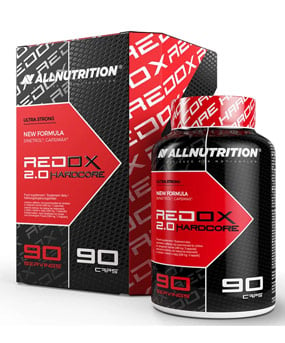średnia zawartość:
20-30 mg cynku,
400-500 mg magnezu
~10mg B6
Witamina B6 pomaga w przyswajaniu cynku i magnezu.
ZMA anaboliczno-antyoksydacyjna formuła podnosi poziom testosteronu o 43,7%.
Faktycznie?
Po kolei - kilka faktow na temat magnezu:
Effect of magnesium supplementation on strength training in humans.
This study investigated the effects of dietary magnesium (Mg) on strength development during a double-blind, 7-week strength training program in 26 untrained subjects (14 = control, C and 12 = Mg supplemented, M), 18-30 years old. Subjects' 3-day diet records were analyzed and Mg content was calculated. C received a placebo and M received a supplement (Mg oxide) to bring Mg intake, including diet, to 8 mg/kg body weight/day. Body composition was assessed with bioelectrical impedance. Pre and post quadriceps torque (T) measurements were made with an Orthotron at 120 deg/sec. Each subject performed three sets of 10 reps, leg press and leg extension, three times/week. Both groups gained strength, however, results indicated a significant (p less than 0.05) increase for the M group compared to the C group in absolute T, relative T adjusted for body weight (T/BWT), and relative T adjusted for lean body mass (T/LBM) when pre values were used as the covariate. M was consistently greater than C (T: 211 vs 174 Nm; T/BWT: 3.07 vs 2.58 Nm/kg; T/LBM: 3.84 vs 3.36 Nm/kg). Conclusion: Significant differences in T gains after strength training were demonstrated in M vs C. Mg's role may be at the ribosomal level in protein synthesis.
http://www.ncbi.nlm.nih.gov/pubmed/1619184?dopt=Abstract&holding=f1000,f1000m,isrctn
byly dwie grupy
-placebo
-grupa przyjmujaca magnez 8mg/kg (100kg=800mg magnezu)
po 7-mio tygodniowym treningu zauwazono ze u grupy przyjmujacej magnez przyrosty byly wieksze
Stwierdzono ze magnez odgrywa wazna role w syntezie bialka
The effects of magnesium supplementation on exercise performance.
OBJECTIVES: Magnesium (Mg) status, although difficult to assess, is suspected to be marginal in many individuals, especially athletes, and this has led to the common use of Mg supplements. The purpose of this article is to critique research that has addressed Mg supplementation in athletes.
DATA SOURCES: The primary database was Medline, which was searched for English articles from 1966 to June 1999 using the words "magnesium" and "supplementation."
STUDY SELECTION: Only experimental studies dealing with human subjects, Mg supplementation, and exercise performance were critiqued (n = 12).
DATA EXTRACTION: Quality of critiqued articles was based on 1) use of cross-over designs, 2) how and if Mg status was assessed, 3) whether treatment was solely Mg supplementation, 4) duration of supplementation, 5) subject number, and 6) degree of experimental control. Articles were classified into "no effect" and "positive effect," and also were examined in regard to the type of performance outcome (strength, anaerobic-lactacid, and aerobic).
DATA SYNTHESIS: Mg is a cofactor to over 325 enzymatic reactions, and a deficiency of the mineral therefore has many physiological and exercise performance implications. Low dietary intakes, as found in many female athletes, coupled with increased urinary losses with exercise, may eventually lead to an Mg deficiency. Strength of evidence favors those studies finding no effect of Mg supplementation, regardless of whether the performance outcome was strength, anaerobic-lactacid, or aerobic. Analysis was confounded due to: 1) variable exercise modes, intensities, and durations, 2) variable training states and ages of subjects, 3) subject selection favoring males and gender differences has not been probed, 4) Mg dosage has ranged from 1 day to 3 months and from 116 mg/day to 500 mg/day, 5) multivitamins/minerals have been ingested with the Mg, 6) with one exception, Mg status was either not reported or reliant on total Mg (TMg), 7) lack of a cross-over design, 8) only one study made note of controlling exercise prior to exercise testing and blood assay, and 9) typical Mg intake measured was only measured in three of the studies.
CONCLUSIONS: Most evidence indicates no effect of Mg supplementation on performance (strength, anaerobic-lactacid, and aerobic). When only peak treadmill speed during a VO2 max test is examined, the strength of evidence is equivocal. Trained subjects appear to benefit less than untrained subjects, but this observation requires further study. Little research has focused on physically active females who may be at the highest risk for Mg deficiency. Research has been confounded by numerous factors.
http://www.ncbi.nlm.nih.gov/pubmed/10959930?dopt=Abstract&holding=f1000,f1000m,isrctn
brak wplywu splementacji magnezem na poprawe sportowych osiagow (np.poprawa sily)
Minerals: exercise performance and supplementation in athletes.
This paper examines whether mineral supplements are necessary for athletes, and whether these supplements will enhance performance. Macrominerals (calcium, magnesium, and phosphorus) and trace minerals (zinc, copper, selenium, chromium, and iron) are described. Calcium supplements are important for the health of bones. Athletes tend to have enhanced calcium status as assessed by bone mineral density, with the notable exception of female amenorrhoeic athletes. Magnesium status is adequate for most athletes, and there is no evidence that magnesium supplements can enhance performance. Phosphorus status is adequate for athletes. Phosphorus supplementation over an extended period of time can result in lowered blood calcium, however, some studies have shown that acute 'phosphate loading' will enhance performance. Athletes may have a zinc deficiency induced by poor diet and loss of zinc in sweat and urine. Limited data exist on the relationship of performance and zinc status. Widespread deficiencies in copper have not been documented, and there are no data to suggest that copper supplementation will enhance performance. There is no reason to suspect a selenium deficiency in athletes. The relationship between selenium status and performance has not been established, but selenium may play a role as an antioxidant. Because of the low intakes of chromium for the general population, there is a possibility that athletes may be deficient. Exercise may create a loss in chromium because of increased excretion into the urine. Many athletes, particularly female, are iron depleted, but true iron deficiencies are rare. Iron depletion does not affect exercise performance but iron deficiency anaemia does. Iron supplements have not been shown to enhance performance except where iron deficiency anaemia exists. In conclusion, poor diets are perhaps the main reason for any mineral deficiencies found in athletes, although in certain cases exercise could contribute to the deficiency. Mineral supplementation may be important to ensure good health, but few studies have definitively documented any beneficial effect of mineral supplementation on performance.
http://www.ncbi.nlm.nih.gov/pubmed/1895366
brak wplywu magnezu i cynku na poprawe osiagniec
Tu wazne badanie:
Update on the relationship between magnesium and exercise.
Magnesium is involved in numerous processes that affect muscle function including oxygen uptake, energy production and electrolyte balance. Thus, the relationship between magnesium status and exercise has received significant research attention. This research has shown that exercise induces a redistribution of magnesium in the body to accommodate metabolic needs. There is evidence that marginal magnesium deficiency impairs exercise performance and amplifies the negative consequences of strenuous exercise (e.g., oxidative stress). Strenuous exercise apparently increases urinary and sweat losses that may increase magnesium requirements by 10-20%. Based on dietary surveys and recent human experiments, a magnesium intake less than 260 mg/day for male and 220 mg/day for female athletes may result in a magnesium-deficient status. Recent surveys also indicate that a significant number of individuals routinely have magnesium intakes that may result in a deficient status. Athletes participating in sports requiring weight control (e.g., wrestling, gymnastics) are apparently especially vulnerable to an inadequate magnesium status. Magnesium supplementation or increased dietary intake of magnesium will have beneficial effects on exercise performance in magnesium-deficient individuals. Magnesium supplementation of physically active individuals with adequate magnesium status has not been shown to enhance physical performance. An activity-linked RNI or RDA based on long-term balance data from well-controlled human experiments should be determined so that physically active individuals can ascertain whether they have a magnesium intake that may affect their performance or enhance their risk to adverse health consequences (e.g., immunosuppression, oxidative damage, arrhythmias).
http://www.ncbi.nlm.nih.gov/pubmed/17172008
dzienna dawka spozywcia magnezu powinna wynosi 260mg dla mezczyzn
220mg dla kobiet
spozywajac mniej narazamy sie na niedobor magnezu
osoby majace braki magnezu - uzupelniajac magnez tym samym poprawily swoje osiagi
Niestety osoby majace wysoki poziom magnezu - spozywajac dodatkowy magnez - nie odnotowaly zadnej poprawy!
teraz troche o cynku:
Zinc status and serum testosterone levels of healthy adults
Zinc deficiency is prevalent throughout the world, including the USA. Severe and moderate deficiency of zinc is associated with hypogonadism in men. However, the effect of marginal zinc defficiency on serum testosterone concentration is not known. We studied the relationship between cellular zinc concentrations and serum testosterone cross-sectionally in 40 normal men, 20 to 80 y of age. In four normal young men (27.5 ± 0.5 y), we measured serum testosterone before and during marginal zinc deficiency induced by restricting dietary zinc intake. We also measured serum testosterone in nine elderly men (64 ± 9 y) who were marginally zinc deficient before and after 3 to 6 mo of supplement with 459 μmol/d oral zinc administered as zinc gluconate. Serum testosterone concentrations were significantly correlated with cellular zinc concentrations in the cross-sectional study (lymphocyte zinc versus serum testosterone, r = 0.43, p = 0.006; granulocyte zinc versus serum testosterone, r = 0.30, p = 0.03). Dietary zinc restriction in normal young men was associated with a significant decrease in serum testosterone concentrations after 20 weeks of zinc restriction (baseline versus post-zinc restriction mean ± SD, 39.9 ± 7.1 versus 10.6 ± 3.6 nmol/L, respectively; p = 0.005). Zinc supplementation of marginally zinc-deficient normal elderly men for six months resulted in an increase ins erum testosterone from 8.3 ± 6.3 to 16.0 ± 4.4 nmol/p (p = 0.02). We conclude that zinc may play an important role in modulating serum testosterone levels in normal men.
http://www.nutritionjrnl.com/article/S0899-9007(96)80058-X/abstract
badano zaleznosc miedzy poziomem cynku a poziomem testosteronu
byly dwie grupy:
-jedna grupa majaca wysoki poziom cynku - zmieniono im diete na taka z mala zawartoscia cynku
-druga grupa odwrotnie - mieli deficyt cynku - zmieniono im dieta z duza zawartoscia cynku (wiecej niz poprzednio spozywali)
wyniki:
-u grupy pierwszej zanorowano spadek poziomu testosteronu
-u grupy drugiej zanotowano wzrost poziomu testosteronu
wniosek:
cynk jest scisle powiazany z poziomem testosteronu
ale podobnie jak w przypadku magnezu - majac wysoki poziom cynku w organizmie - spozywajac kolejne porcje ,nie poczynimy postepow (czyt.nie podniesiemy bardziej poziomu testosteronu)
Effect of fatiguing bicycle exercise on thyroid hormone and testosterone levels in sedentary males supplemented with oral zinc.
OBJECTIVE: The aim of this study was to determine how exercise affects thyroid hormones and testosterone levels in sedentary men receiving oral zinc for 4 weeks.
METHODS: The study included 10 volunteers (mean age, 19.47+/-1.7 years) who did not exercise. All subjects received supplements of oral zinc sulfate (3 mg/kg/day) for 4 weeks and their normal diets. The thyroid hormone and testosterone levels of all subjects were determined at rest and after bicycle exercise before and after zinc supplementation.
RESULTS: TT3, TT4, FT3, and total and free testosterone levels decreased after exercise compared to resting levels before supplementation (p<0.01). Both the resting and fatigue hormone values were higher after 4 weeks of supplementation than the resting and fatigue values before supplementation (p<0.05).
CONCLUSION: The results indicate that exercise decreases thyroid hormones and testosterone in sedentary men; however, zinc supplementation prevents this decrease. Administration of a physiologic dose of zinc can be beneficial to performance.
http://www.ncbi.nlm.nih.gov/pubmed/17984944
grupa 10mezczyzn spozywala 3mg cynku na kgmc (to jest olbrzymia ilosc -> 10x wiecej niz wynosi dzienne zapotrzebownie)
badano poziom testosteronu przed suplemnetacja cynkiem i po suplemnetacji cynkiem (3mg/kgmc)
wyniki:
-przed suplementacja cynkiem na skutek treningu spadl poziom testosteronu
-po suplemnetacji cynkiem - poziom testosteronu pozostal bez zmian/obnizyl sie nieznacznie

....ale tak wysokie dawki moga prowadzic do wielu powiklan -
[Effects of high level Zn intake on metabolism in man].
OBJECTIVE: To observe the effects of high level Zn intake on zinc (Zn) copper (Cu), lipids metabolism and antioxidation function in man so as to provide scientific basis for Zn supplementation.
METHODS: 40 rural healthy men were chosen and tablets of 50 mg Zn (as 0.2 g of zinc glucose) per day was taken by them for eight weeks. All subjects were checked up for five times: at week 0, 2, 4, 8 during the period of Zn supplementation and at week 12 and their serum, RBC, hair, and 24h-urine were collected for assays at the same time.
RESULTS: (1) Zn contents in serum, RBC and hair increased significantly after 2 to 4 weeks supplementation and decreased at 4 weeks after stopping supplementation, but they were still higher than those before supplementation. Zn contents in 24h-urine increased significantly after supplementation and decreased at 4 weeks after stopping supplementation to the same level as before supplementation. (2) Cu contents in serum, RBC and hair increased significantly after 4 weeks supplementation and decreased at 4 weeks after stopping supplementation. Cu contents in 24h-urine did not change significantly during experiment. (3) RBC superoxide dismutase (SOD) activities were decreased persistently after 2 weeks supplementation and were not recovered at 4 weeks after stopping supplementation. RBC glutathione peroxidase (GPX) activities increased significantly after 4 weeks supplementation. The content of lipid peroxide (LPO) increased significantly after 2 weeks supplementation. (4) Total cholesterol (TC), triglyceride (TG), Low density lipoprotein cholesterol (LDL-C) and apolipoprotein B100 (ApoB100) increased significantly, high density lipoprotein cholesterol (HLD-C) and apolipoprotein A1 (ApoA1) decreased after supplementation.
CONCLUSION: When healthy men received 50 mg Zn supplement per day, it might interfere Zn, Cu and lipids metabolism and inhibit antioxidation process.
http://www.ncbi.nlm.nih.gov/pubmed/15727190
40 mezczyzn spozywala 50mg cunku przez okres 8 tygodni
wnioski:
-podwyzszony poziom LDL
-Podwyzszony poziom trojglicerydow
-Podwyzszony poziom cholesterolu
-obnizony poziom HDL
Suplemnetacja 50mg cynku moze ingerowac w metabolzim tluszczów jak rowniez dzialac hamujaco na antyoksydanty!
Ponownie widac ze wszystko zalezy od naszej indywidualności.
Tak jak w przypadku chociazby kretyny - gdzie wieksze postepy odnotowuja osoby z mala zawartoscia kreatyny (bo malo dostarczaja z pozywienia) - spozywajac suplementy z kreatyna odnotowaly wieksze postepy - niz osoby ktore dostarczaja duze dawki kretyny z pozywienia i maja stle wysoki jej poziom
**************************
Wracajac do ZMA
Effects of Zinc Magnesium Aspartate (ZMA) Supplementation on Training Adaptations and Markers of Anabolism and Catabolism
This study examined whether supplementing the diet with a commercial supplement containing zinc magnesium aspartate (ZMA) during training affects zinc and magnesium status, anabolic and catabolic hormone profiles, and/or training adaptations. Forty-two resistance trained males (27 ± 9 yrs; 178 ± 8 cm, 85 ± 15 kg, 18.6 ± 6% body fat) were matched according to fat free mass and randomly assigned to ingest in a double blind manner either a dextrose placebo (P) or ZMA 30-60 minutes prior to going to sleep during 8-weeks of standardized resistance-training. Subjects completed testing sessions at 0, 4, and 8 weeks that included body composition assessment as determined by dual energy X-ray absorptiometry, 1-RM and muscular endurance tests on the bench and leg press, a Wingate anaerobic power test, and blood analysis to assess anabolic/catabolic status as well as markers of health. Data were analyzed using repeated measures ANOVA.
In the present study, fasting zinc and magnesium levels were within normal ranges (1.04 ± 0.24 to 1.08 ± 0.2 μg/mL) and training did not negatively impact on zinc or magnesium status. ZMA supplementation promoted only a modest but non-significant increase in plasma zinc levels (12-17%) while magnesium levels were not significantly affected. These findings indicate that within the population and sample tested, ZMA supplementation had no discernable effects on plasma zinc or magnesium status. While the present study did not assess tissue levels of these minerals, these findings suggest that ZMA supplementation may not be needed or beneficial in this population of athletes.
http://www.jissn.com/content/1/2/12
42 mezczyzn zostalo podzielonych na 2 grupy:
-placebo
-grupe przyjmujaca ZMA przed snem (30mg cunku,450mg magnezu,11mg B6)
po 8tygodniach suplementacji i treningu wyciagnieto wnioski:
-suplemenatcja ZMA spowodowala nieznaczny wzrost poziomu cynku ~12%
-poziom magnezu wzrosl nieznacznie
-nie zauwazono roznicy pomiedzy grupami a poziomem hormonow (w tym testosteronu)

szary-placebo
czarny-ZMA
Serum testosterone and urinary excretion of steroid hormone metabolites after administration of a high-dose zinc supplement.
OBJECTIVES: To investigate whether the administration of the zinc-containing nutritional supplement ZMA causes an increase of serum testosterone levels, which is an often claimed effect in advertising for such products; to monitor the urinary excretion of testosterone and selected steroid hormone metabolites to detect potential changes in the excretion patterns of ZMA users.
SUBJECTS: Fourteen healthy, regularly exercising men aged 22-33 years with a baseline zinc intake between 11.9 and 23.2 mg day(-1) prior to the study.
RESULTS: Supplementation of ZMA significantly increased serum zinc (P=0.031) and urinary zinc excretion (P=0.035). Urinary pH (P=0.011) and urine flow (P=0.045) were also elevated in the subjects using ZMA. No significant changes in serum total and serum free testosterone were observed in response to ZMA use. Also, the urinary excretion pattern of testosterone metabolites was not significantly altered in ZMA users.
CONCLUSIONS: The present data suggest that the use of ZMA has no significant effects regarding serum testosterone levels and the metabolism of testosterone in subjects who consume a zinc-sufficient diet.
http://www.ncbi.nlm.nih.gov/pubmed/17882141
suplemnetacja ZMA u ghrupy 14 osob nie spowodowala zadnych zmian w poziomie testosteronu
Jakie wnioski?
osoby ktore dostarczaja z diety odpowiednie wysokie dawki zarowno cynku jak i magnezu nie odczuja dzialania suplementu jakim jest ZMA.
Osoby z malymi zasobami cynku i magnezu - suplemntujac sie ZMA moga podniesc poziom cynku i magnezu do srednich (normalnym) wartosci,tym samym podniesc poziom testosteronu do normalnych wartosci - takich jakie wystepuja w czasie gdy nie mamy niedoboru cynku i magnezu.
Dla pozostalych osob - stale dostarczajacych odpowiednio wysokich/zlecanych dawek cynku i magnezu - ZMA uczyni NIC!
Zmieniony przez - solaros w dniu 2011-02-09 00:41:34
"Cóż jest trucizną?
Wszystko jest trucizną i nic nie jest trucizną, tylko dawka czyni, że dana substancja nie jest trucizną!".
BLOG: http://www.sfd.pl/t1033576.html





 Krzysztof Piekarz
Krzysztof Piekarz




 zaczynam coraz bardziej lubić Twoje wrzuty tutaj
zaczynam coraz bardziej lubić Twoje wrzuty tutaj 



